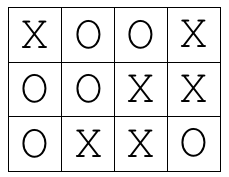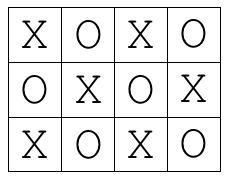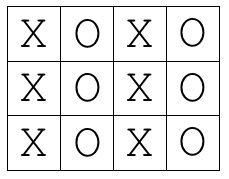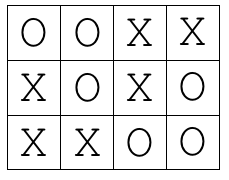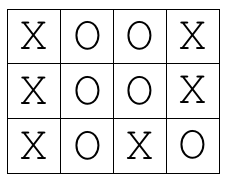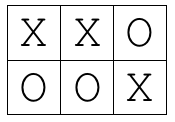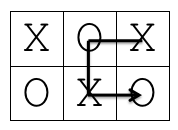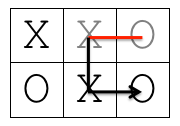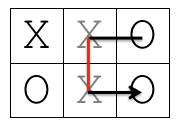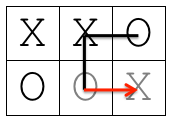Here is a grid of X’s and O’s. (Why is it here? There is no elaborate backstory. It simply is.) Now, let’s draw a path on top of it.
When you draw the path, something curious happens. As you move from one box to the next box, the X’s and O’s switch spots.
So, as you moved from the top right box to the middle box, the X and the O switched spots.
Then, when you moved down, the two X’s switched.
Finally, the X and O at the bottom switch.
Leaving you with a grid that looks like this.
You also know (no one tells you; you simply know) these rules:
- You can only move up, down, left, and right through a grid. No diagonal movement.
- Each grid can only have one path. No skipping boxes.
- A path can’t enter a box more than once; a path can’t intersect itself.
Now, here is a series of six grids. (Like the first grid, none of these grids have elaborate backstories either.) Your job — no one hired you, but you feel compelled by honor and duty to complete the task — is as follows: Draw a path in grid 1 that will make it look like grid 2 when you’re done. Then, draw a path in grid 2 to make it looks like grid 3. And so on and so forth. Draw paths to get from grid 1 to 2, 2 to 3, and 3 to 4 for a total of 15 points. For 5 additional points, draw paths from grid 4 to 5 and 5 to 6!
